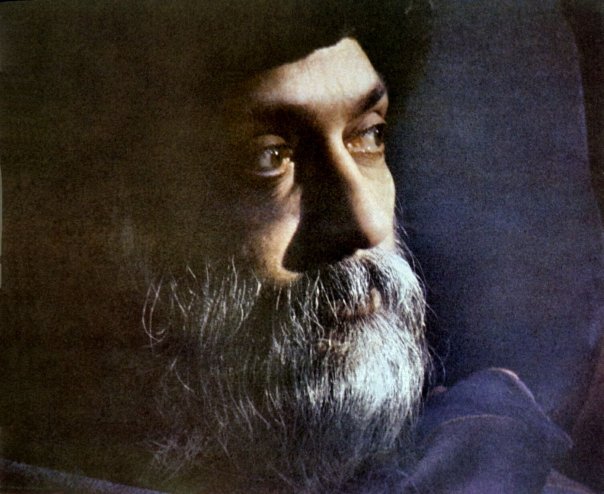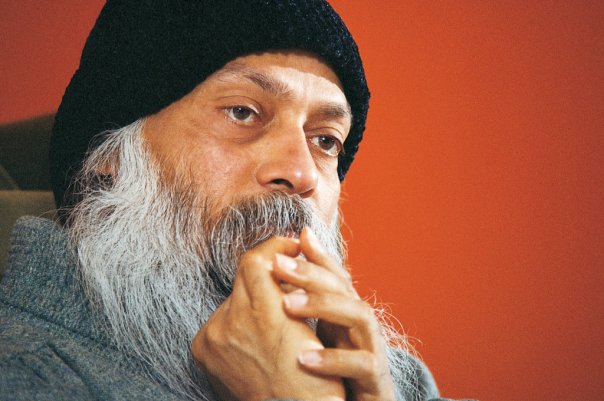
It certainly needs courage. It also needs courage because it is getting rid of tradition, of the past, of history. It is trying to live in the present according to your own light, not being dominated by the dead, not being dominated by history. To be free of history is such a tremendous joy, but it is also a risk, because then you are left alone, then you don’t have any guidelines, any maps to follow. But that’s the beauty of it too. When you don’t have any guidelines your own consciousness rises to take the challenge. When you don’t have the map you start exploring on your own. Then life becomes an adventure.

 And about the change of your name is just indicative that you disown your past-that now you are no longer continuous with the past. Of course you cannot erase it, it is there. But increasingly you will see that it belonged to somebody else, that it is as if you had dreamt about it or you had seen a movie or read a novel you are totally separate from it.
And about the change of your name is just indicative that you disown your past-that now you are no longer continuous with the past. Of course you cannot erase it, it is there. But increasingly you will see that it belonged to somebody else, that it is as if you had dreamt about it or you had seen a movie or read a novel you are totally separate from it. Sannyas is new for you, always choose the new, always choose the unknown, and that has made all the difference, life grows only by choosing challenges. Life grows only by going into the storms. Life grows only by risking, gambling, sannyas needs courage. The old sannyas was not so dangerous. People think my sannyas is easier than the old, ancient idea of sannyas. But they are utterly wrong. the old sannyas is very simple because it expected, not only expected but demanded—that you renounce the world, it was simple, you went into a monastery, you live there, undisturbed, undistracted by the world. Meditation becomes your whole life with no distractions. It was a monotonous life. The word ‘monastery’ and ‘monotony’ come from the same root. So does the word ‘monk’. Life was settled, monotonous, repetitive, the same, and the world was left far behind. It was easy.
My sannyas is far more complex. You have to live in the market-place and yet live as if you were living in a monastery. You have to accept all the distractions of life and yet remain undistracted. You have to be in the world and not be of it. I have thrown a great challenge to you. The old concept of sannyas was not challenging enough. It was very appealing to the cowards, to the escapists-those who were weary of life those who were tired of life, those who were incapable of life, they have escaped from life.
It is life that gives you sharpness; otherwise your sword will never be sharp. It is the struggle in life that provokes all the springs of your talents to come to the surface. You have to be intelligent to survive.
 My sannyas is the most complicated phenomenon that has ever happened on the earth because I don’t say to you leave the world, I say live in it, indulge in it, love it enjoy it, go as deeply as possible so your intelligence is sharpened, your life provoked, your dormant sources of energies become dynamic, flowing. And yet keep yourself centered in your being-a watcher on the hills.
My sannyas is the most complicated phenomenon that has ever happened on the earth because I don’t say to you leave the world, I say live in it, indulge in it, love it enjoy it, go as deeply as possible so your intelligence is sharpened, your life provoked, your dormant sources of energies become dynamic, flowing. And yet keep yourself centered in your being-a watcher on the hills.Remain an actor and let the life be just a drama where you are fulfilling a certain role. But don’t get identified with the role. Remember continuously that this is a role – that you are a carpenter or a doctor or an engineer or a teacher, husband, wife, mother, father, son – that these are all roles and the earth is a great stage and a great drama is on. God is the author of it and the director of it and you are just actors, participating. When the curtain falls your roles will disappear. You will again be just a pure being. You will not be the role that you had played. The world has to be transformed into an opportunity to remember yourself, for self-remembering.
Hence sannyas is arduous. And I know that everybody hesitates before they take the jump, but if the desire has arisen, if the longing is there, don’t kill it, because that will be suicidal. Experiment with it, explore this new dimension. You have lived one way-what is the point of going on repeating it again and again? Live this new style too. Who knows? – You may come across god on this way. Who knows? - Fulfillment may await you on this path.
OSHO.





